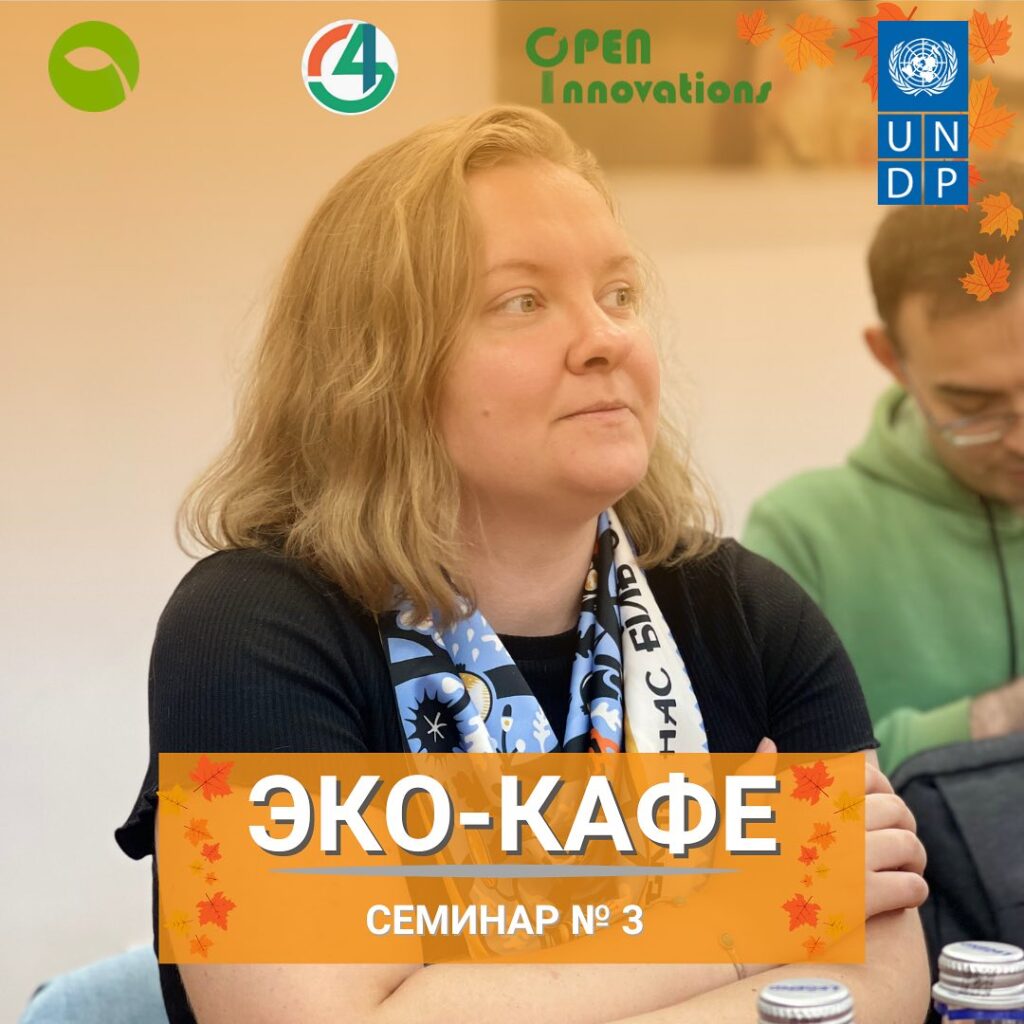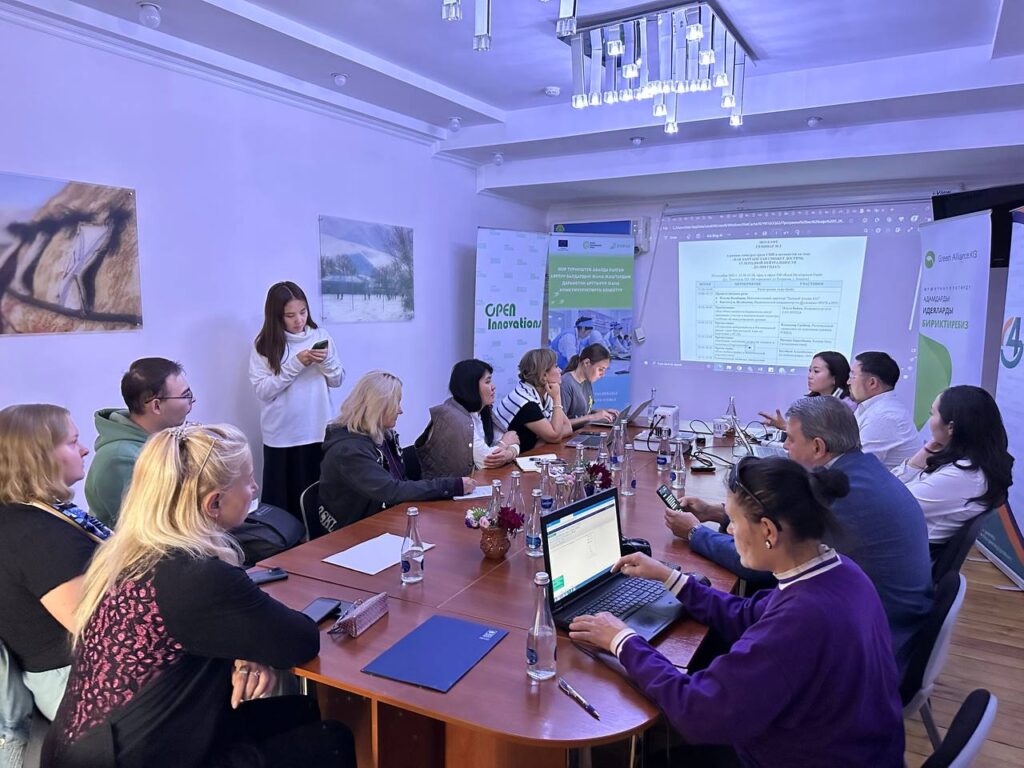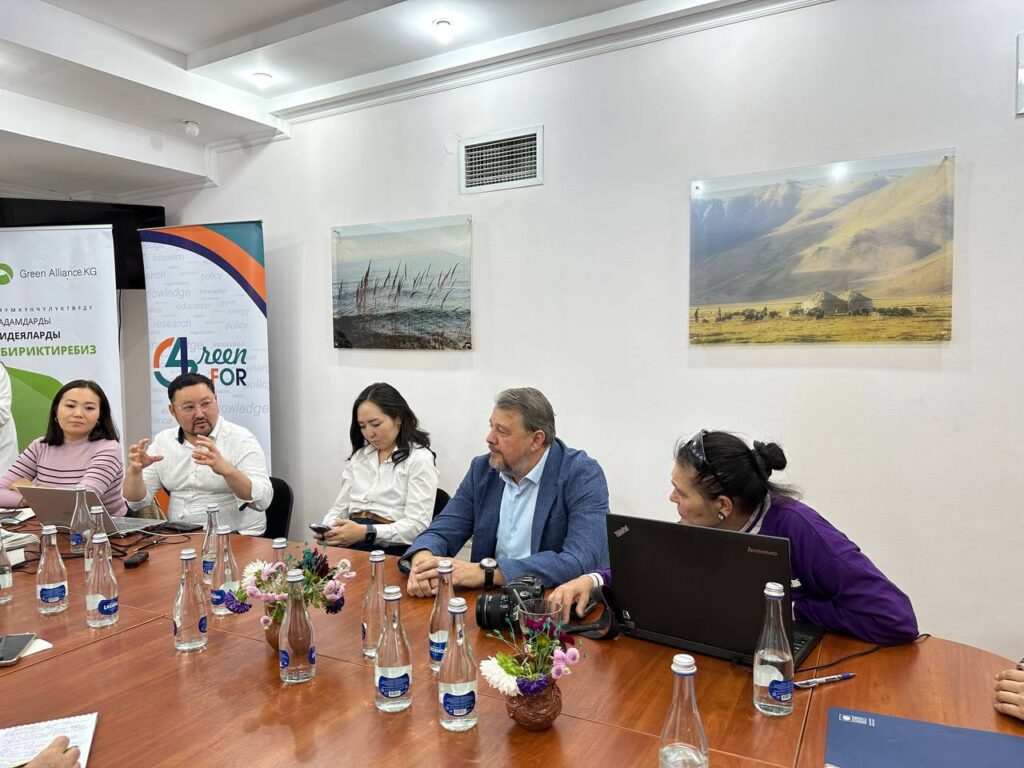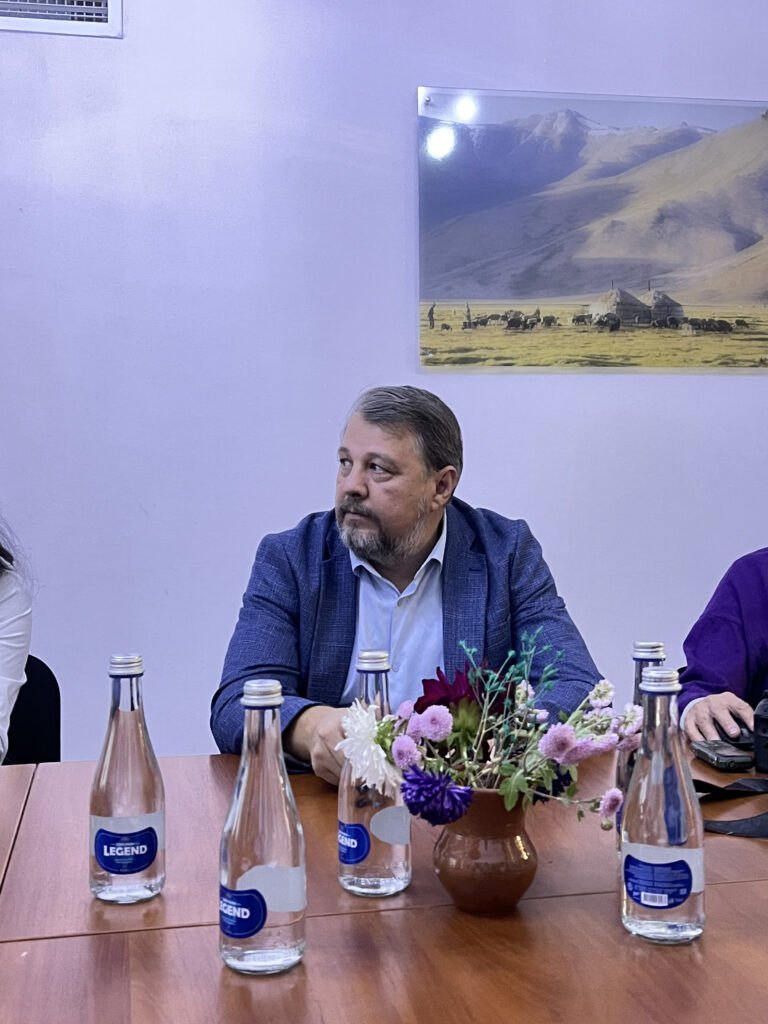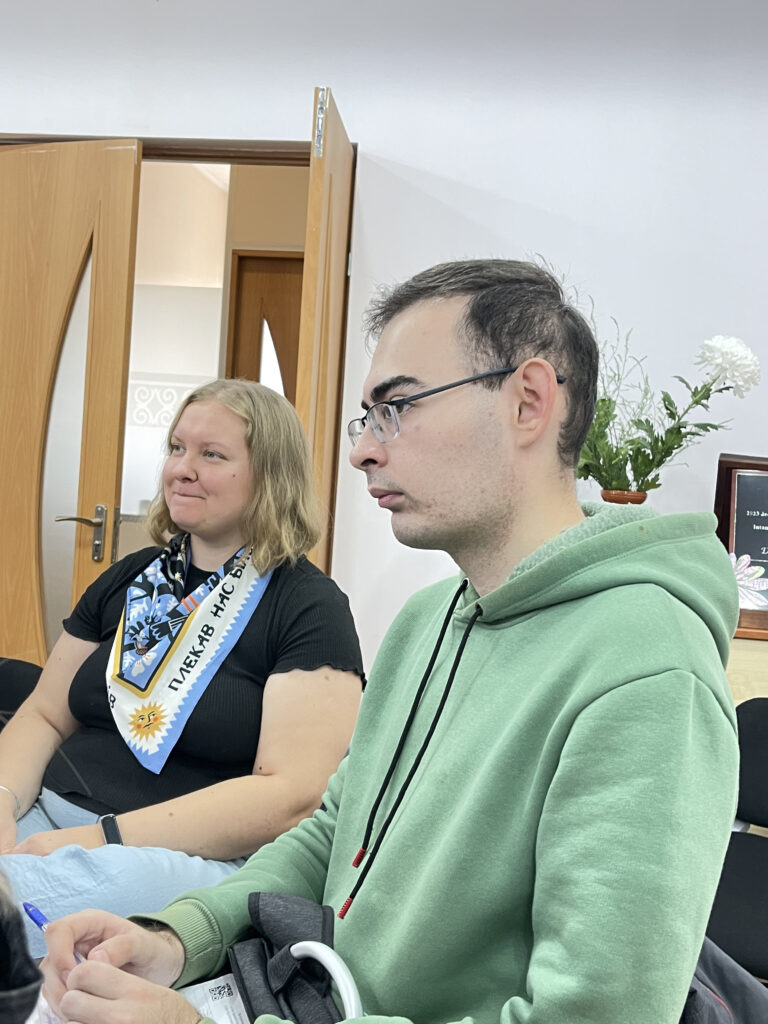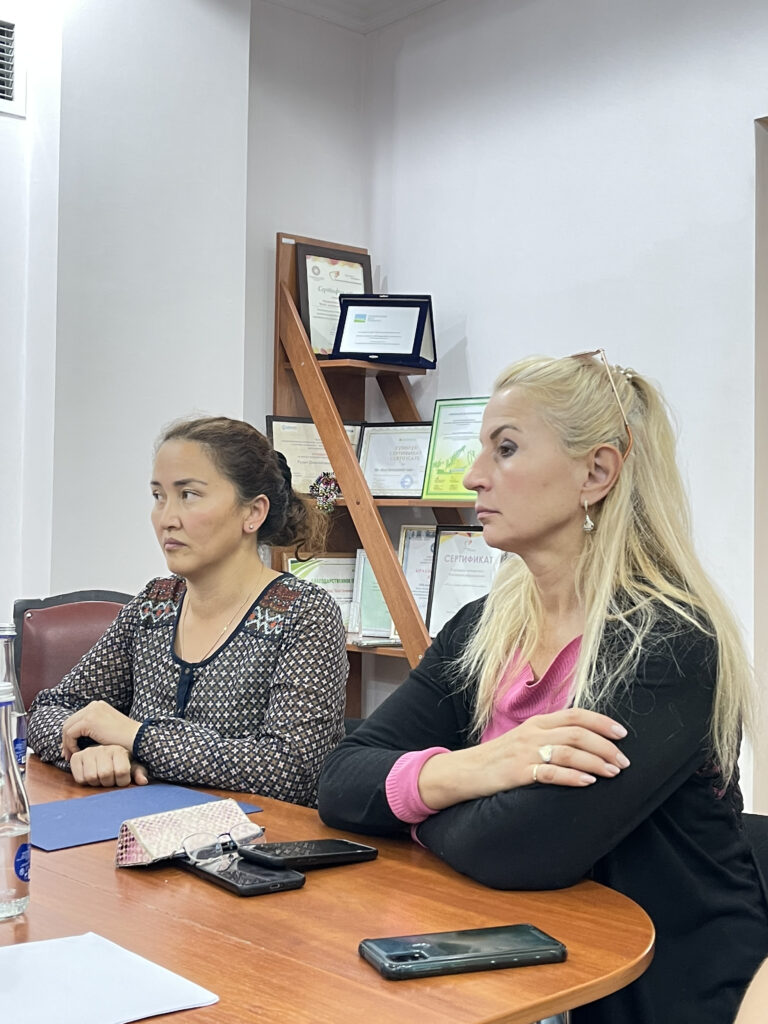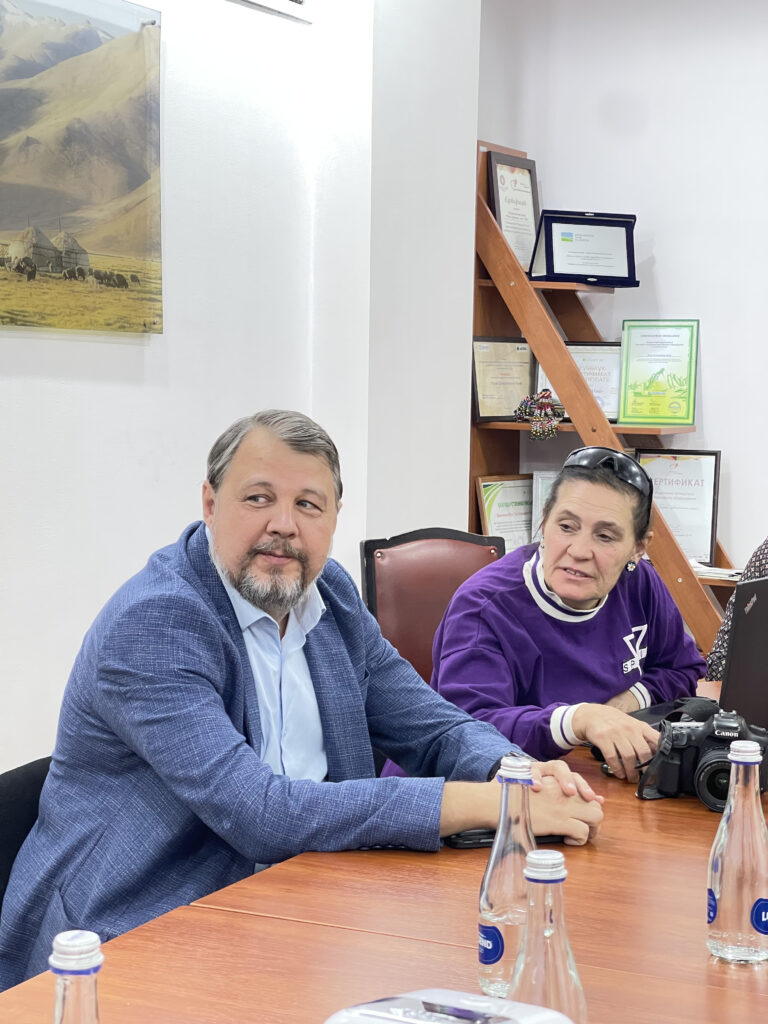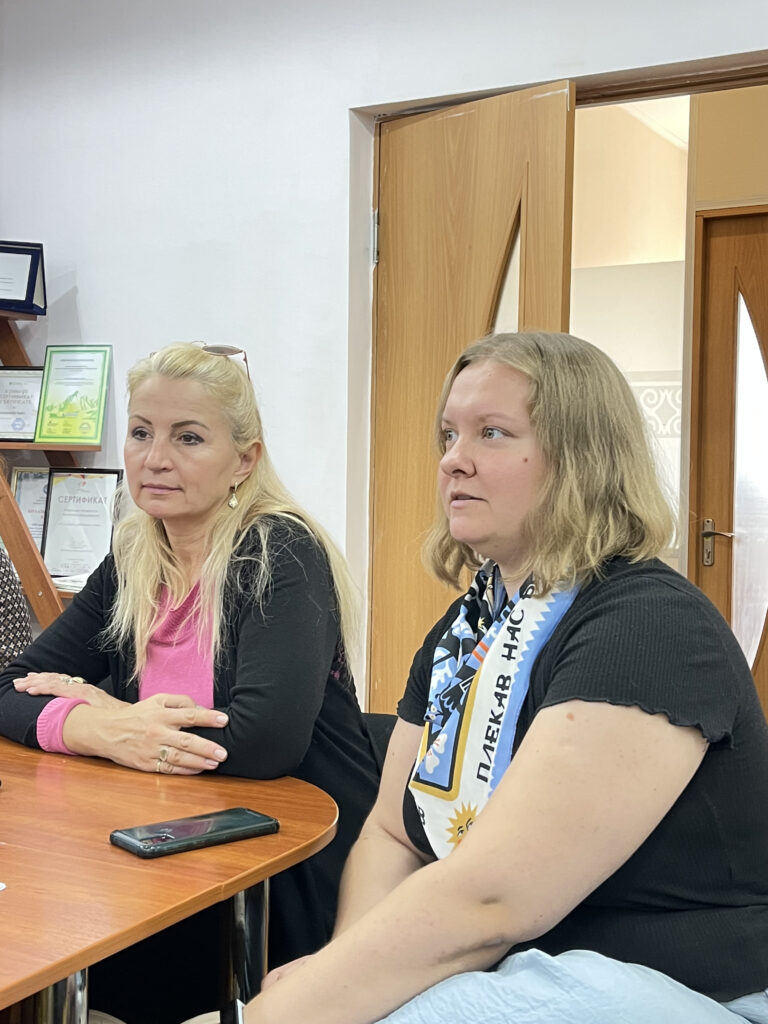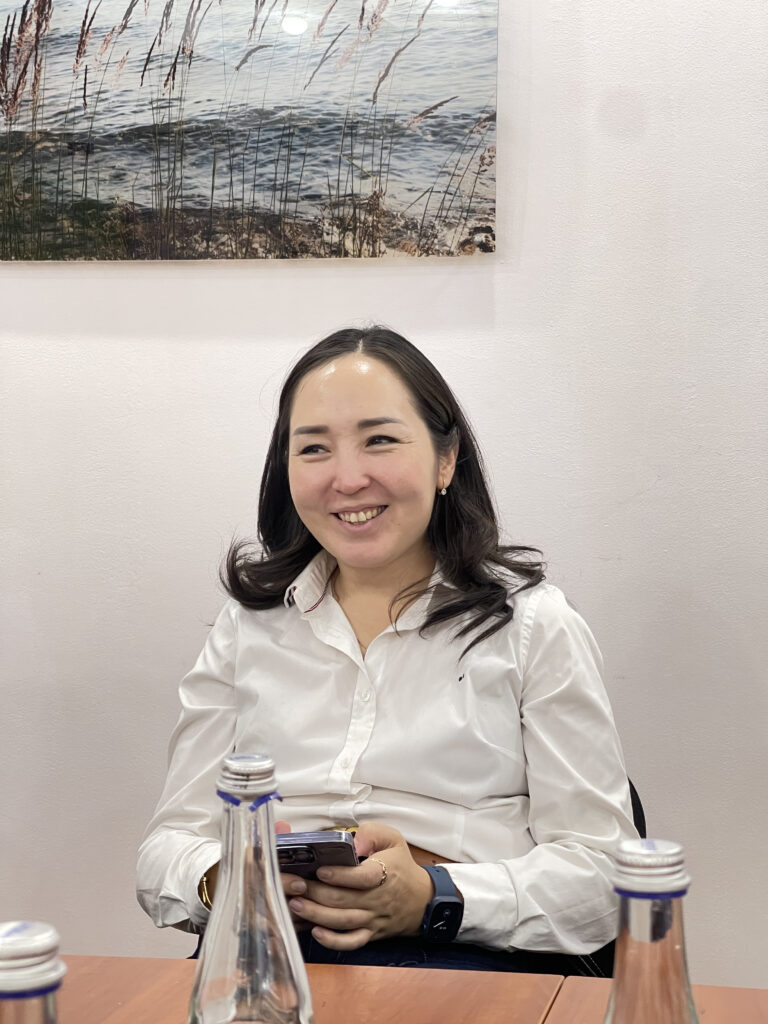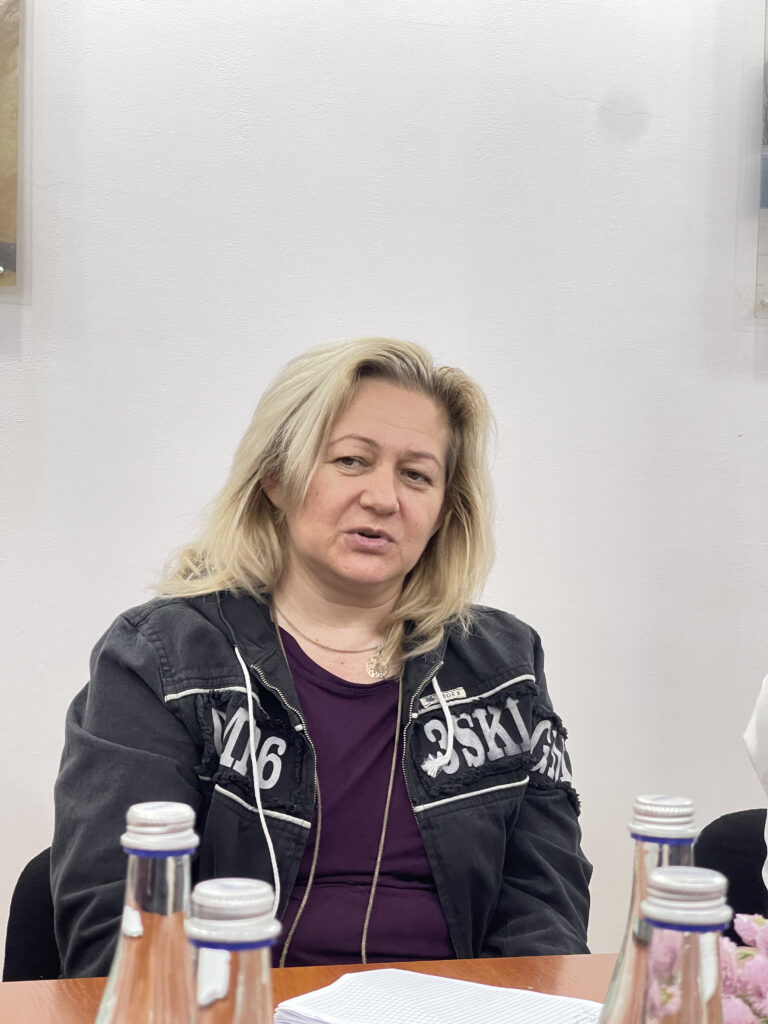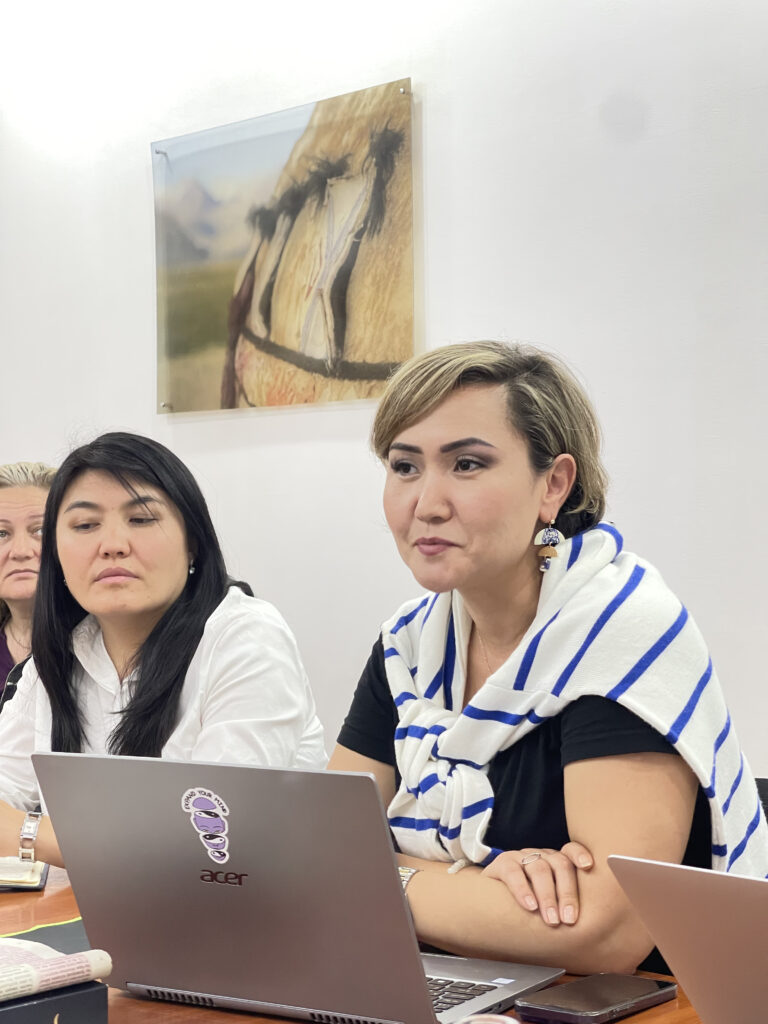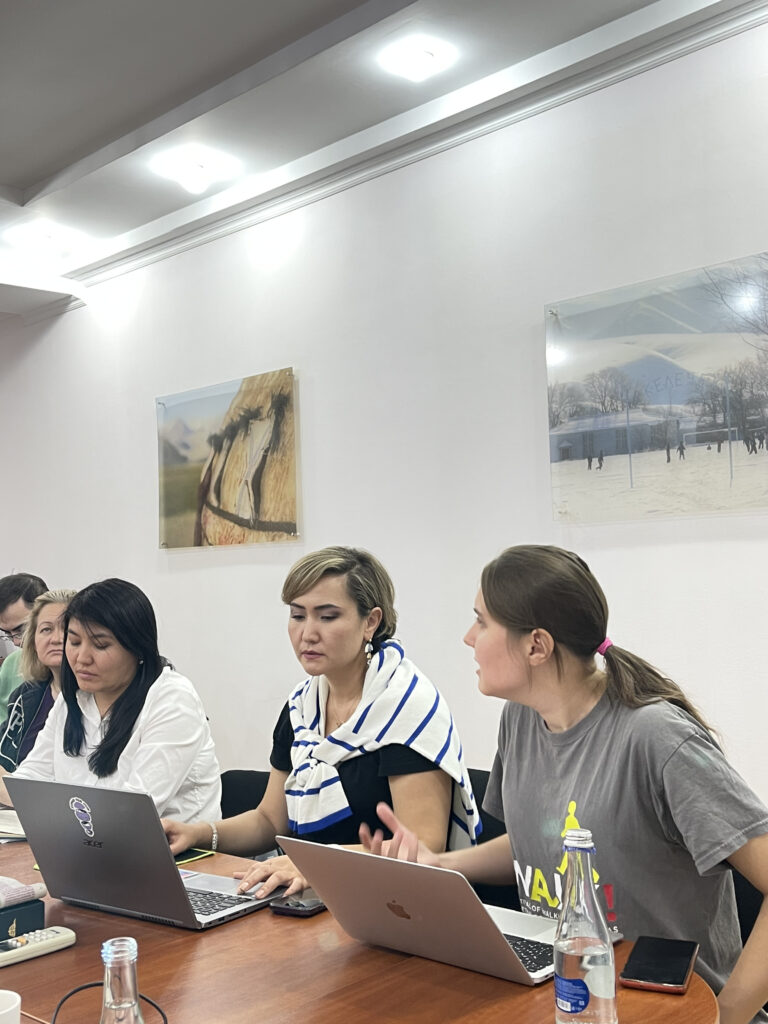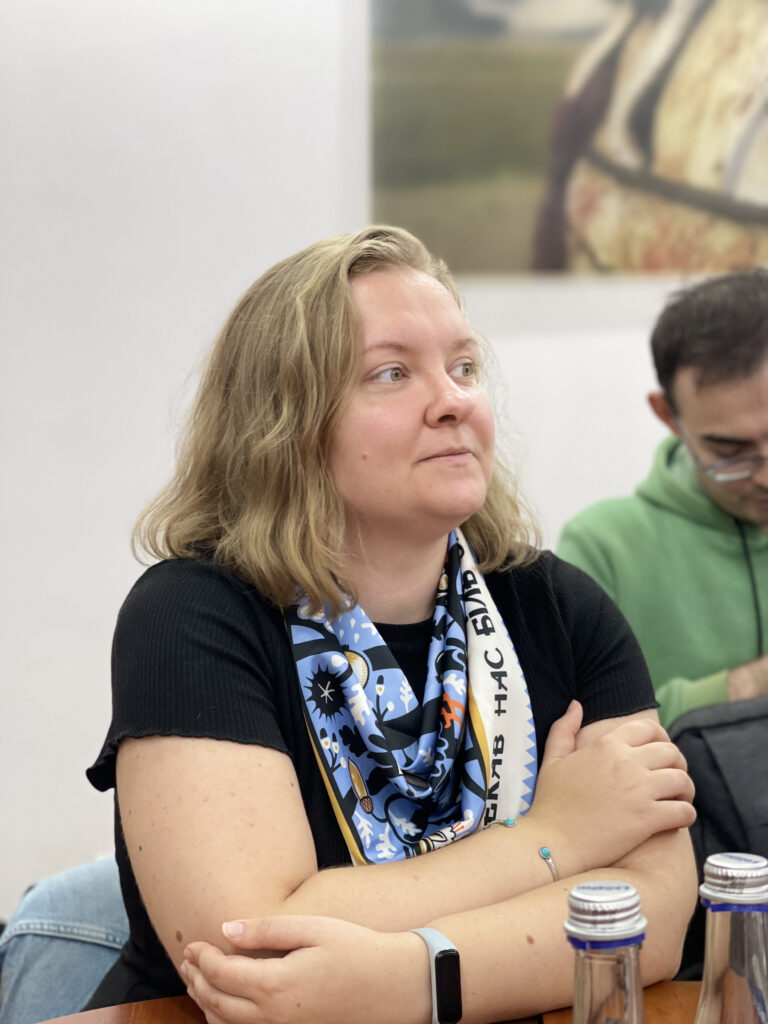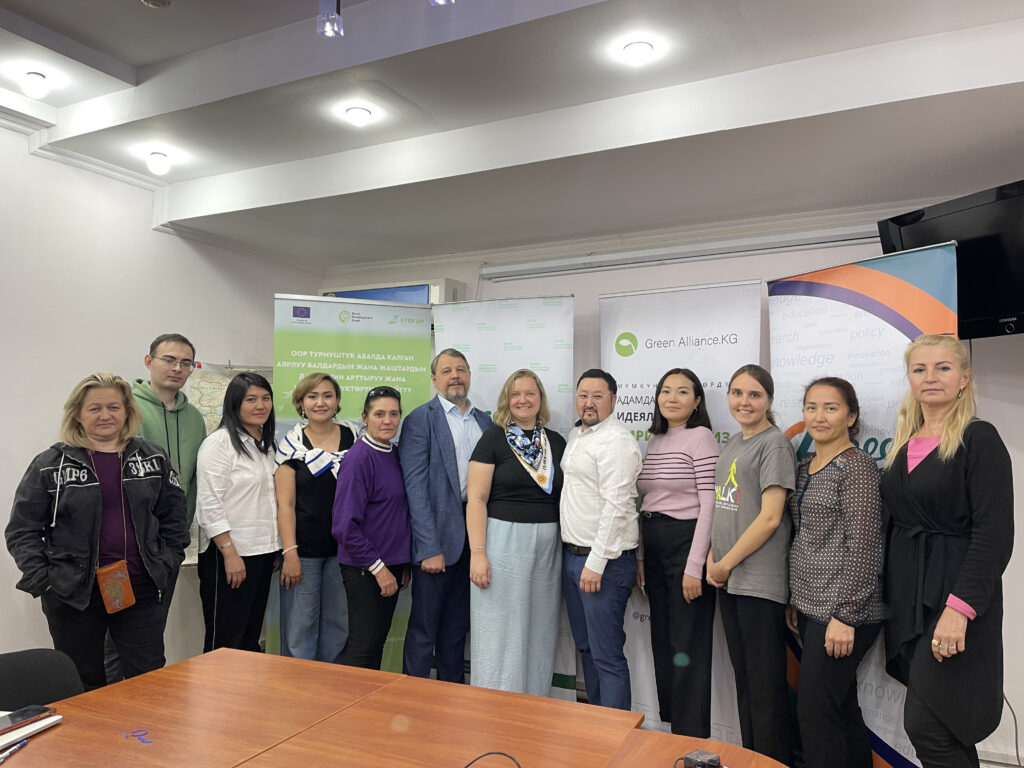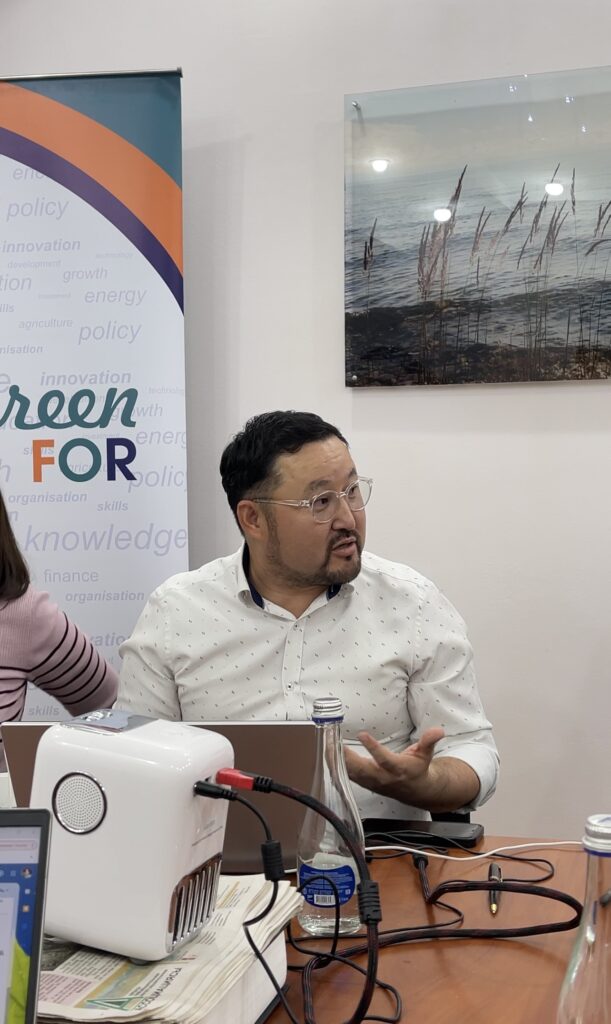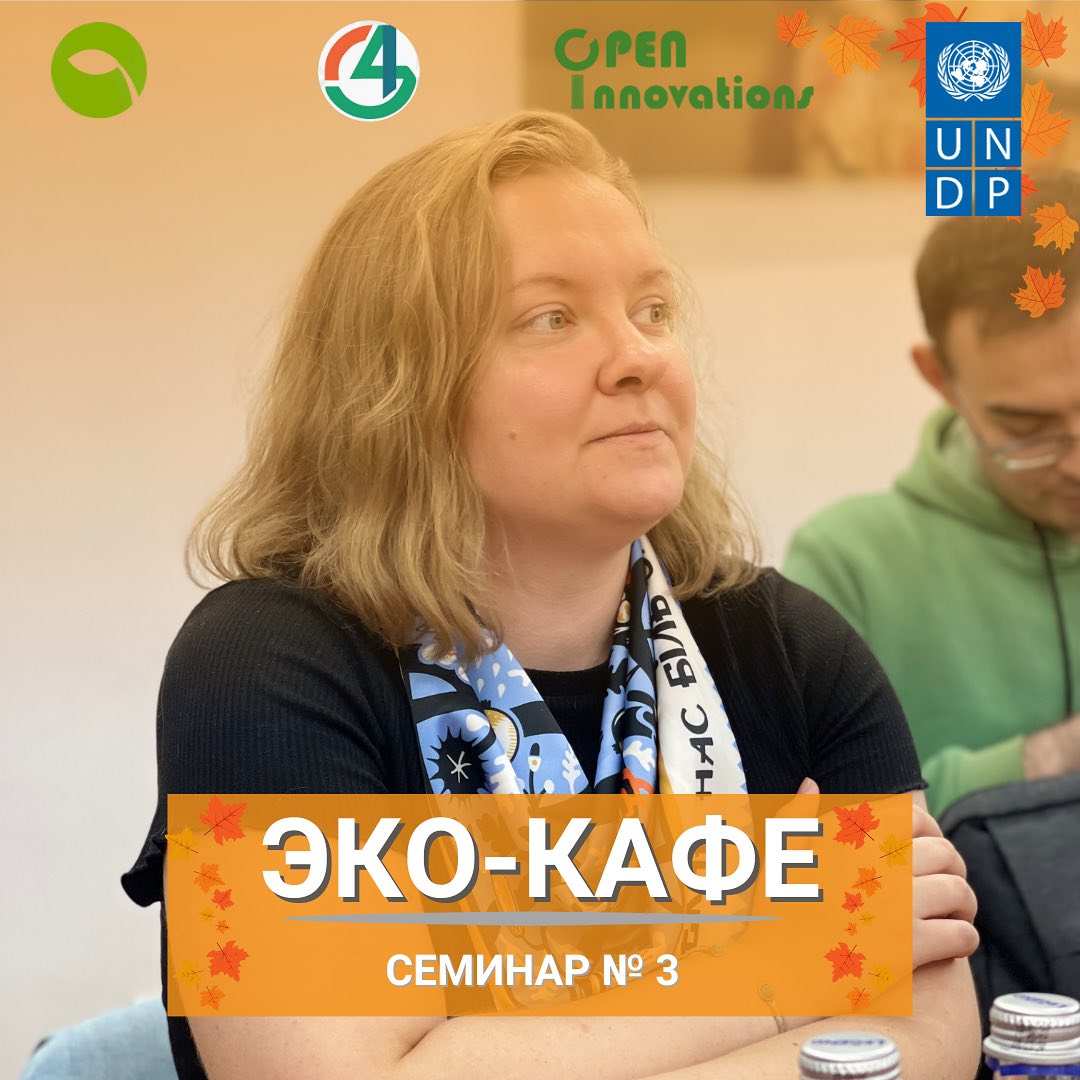
On September 29, 2023, as part of a competition among the media and activists on the topic: “How can Kyrgyzstan achieve carbon neutrality by 2050?” an Interactive Seminar ECO-CAFE No. 3 was held within the framework of the general UNDP project “Providing advisory support in the development of the “Expanded NDC Implementation Plan and the Long-term Low-Carbon Development Strategy (LTS) until 2050.”
Olga Boyko, coordinator of CAN EECCA (Climate Action Network in the region of Eastern Europe, Caucasus and Central Asia), among other things, shared during her speech that the exchange of information and support of online platforms is the basis of our network’s work, the audience to which the media work is aimed are decision-makers (officials, members of official delegations, experts, deputies), journalists of the EECCA region, member organizations of the network, international journalists and NGOs. She also noted that there are three categories of participants at the Conference of Parties: 1) representatives of the Parties to the Convention and observer states, 2) representatives of the press and mass media and 3) representatives of observer organizations. “Media accreditation is intended exclusively for media workers (print, photo, radio, television, cinema, news agencies and online media) who represent a bona fide media organization (officially registered as a media organization in a country recognized by the United Nations General Assembly),” concluded Olga Boyko.
Ysabekova Baktygul, UNDP Coordinator for the implementation of NDCs/DSSSDs, called on journalists to actively participate in the competition and noted their important role in covering the problems caused by climate change.
Regional Climate Change Specialist, CAREC (Regional Environmental Center for Central Asia) – Grebnev Vladimir during the presentation “CAREC: Supporting the Regional Process of Joint Preparation of Central Asian Countries for the 28th Conference of the Parties to the UN Framework Convention on Climate Change” also spoke about supporting the preparation and participation of Central Asian countries at COP28 of the UNFCCC. He highlighted four points:
Building capacity, raising public awareness and raising awareness of Central Asian delegates with the participation of UNFCCC focal points, key national and international development partners for COP28
Developing 2 joint statements (1) on behalf of governments, (2) NGOs and youth from Central Asian countries
Supporting productive, knowledge-based participation of Central Asian delegates at COP28
Creating a Central Asian Pavilion at COP28
Kurama Story Lab environmental journalist Munara Borombaeva shared her unique story of how environmental issues can be communicated in remote regions of Kyrgyzstan. She noted that it was not easy to work on coherent content and reach out to villages to talk about the problems caused by climate change and called for more attention to be paid to Kyrgyz-language content on climate change, environmental protection, biodiversity and the importance of these aspects for local communities in various remote regions of the country.
By the end of the seminar, the participants also improved their analytical and research skills and knowledge by listening to the speakers. The role of journalism in covering climate change issues; Challenges and prospects for the development and current state of eco-journalism in the country and in the region; How to make a good material for publication?
How to attract the public to climate change issues.
Executive director of the Green Alliance KG, Ilgiz Kambarov, noted that the role of journalists in disseminating information about climate change and all preventive measures taken in this regard by our government and society is enormous. No matter how we feel about the media, believing that the public is not interested in this problem, it is obvious that if we present them with verified facts, they can be persuaded to combat the climate change. How we talk about climate change is no less, if not more, important than the frequency of publications. Thus, the goal of journalism is to provide citizens with the information they need to make the best decisions about their lives, their communities, their societies and their governments.
Participants attempted to answer the question of how journalism can ultimately help the environment. Here are the main conclusions that were made: In order for journalists to have a broader impact on society and decision makers, it is important to consider the following points, among others; 1. Organizing discussions on environmental issues. 2. Advocating among the population. 3. Creating synergies for topics ignored by the mainstream media. 4. Creating synergies among members of the public, communicators, institutions, NGOs and any agents involved in environmental issues.
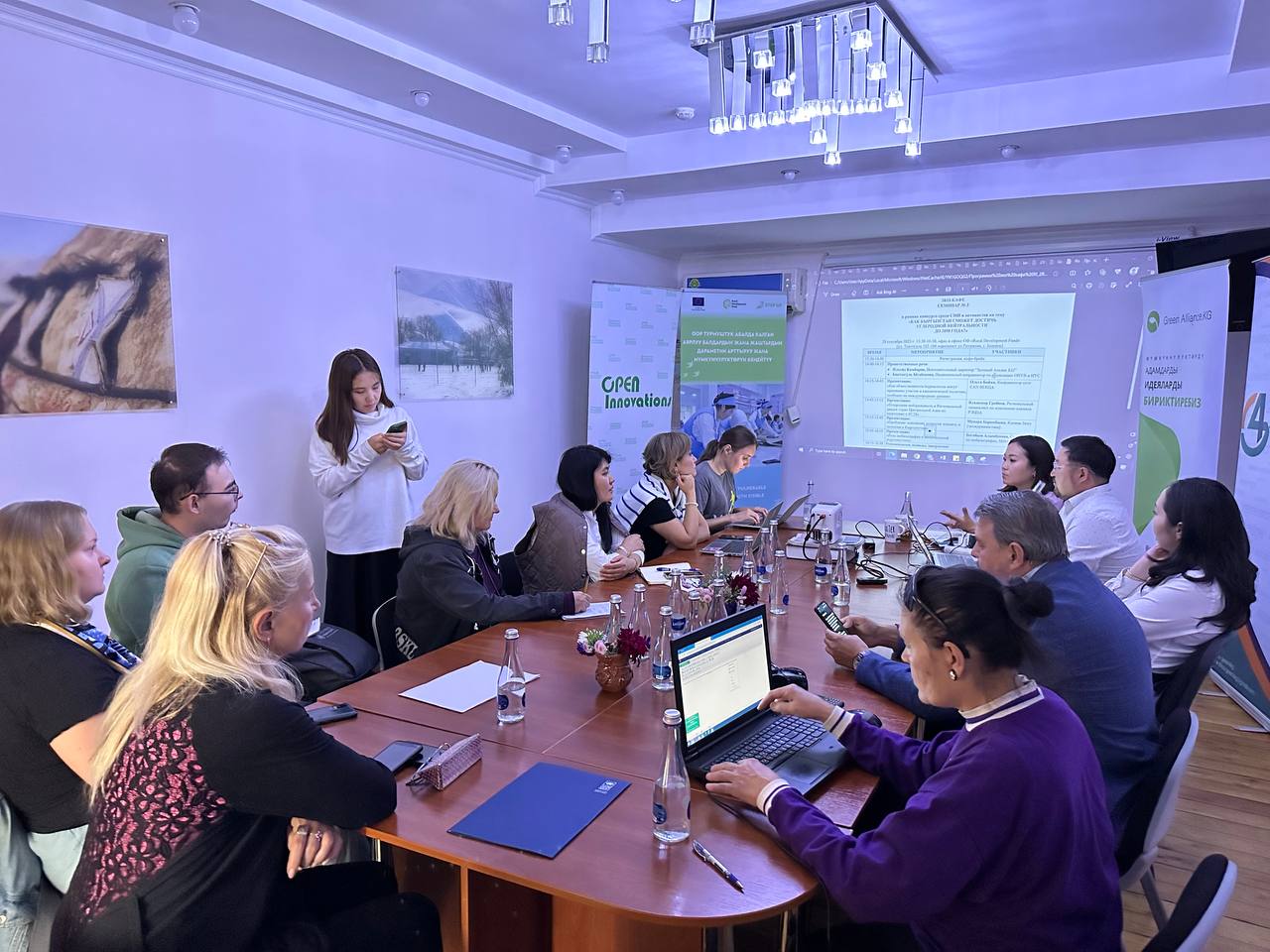
This event is being implemented with the support of the UNDP project “Providing Advisory Support in the Development of the “Expanded Plan for the Implementation of the NDC and the Long-term Low-Carbon Development Strategy (LTS) until 2050”.

